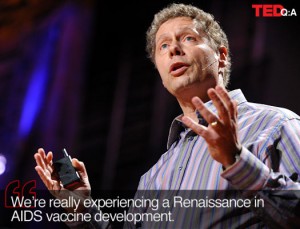By Mary Jane Rotheram, Ph.D.
I am tired of researching HIV disease. A recent CDC Funding Opportunity calls for a “National Coalition to Enhance STD/HIV Prevention through Promotion of a Holistic Approach to Health and Wellness.” It asks for communities to think about addressing HIV not just as a singular challenge, but from an approach of community wellness. And not simply for HIV, either, but includes the integration of diagnostic and prevention services for various STDs as well as Hepatitis B and C. It makes a strong argument for program integration and service collaboration to attack a range of challenges in a holistic manner. It is time for this approach.
Yet, there are going to have to be REALLY innovative approaches if this is to succeed. There will be major potential risk and benefits.
Ryan White funding is intended to secure the uninsured (and underinsured) right to comprehensive HIV treatment and access to medications. In our current budget crises, I do not expect HIV to remain carved out. The chance is great that Ryan White legislation may not be reauthorized two years from now. Persons living with HIV may be mainstreamed into the patient-centered medical homes and insurance exchanges to be set up by states. In California, the five-year old fiscal crisis has already eliminated many of the existing funding for HIV prevention (with the exception of HIV testing). Waiting lists for AIDS Drug Assistance Programs have increased in many states, and currently over 6,000 people are on them nation-wide.
Agreeing to mainstream HIV into community wellness may be encouraging this scenario, so our best long-term strategy may be accepting the inclusion of HIV in overall health reform scenarios like medical homes rather than fighting for a carved out piece of a shrinking pie.
If we are focused on wellness, HIV-specific funding may disappear. Many of the functions previously funded by Ryan White and CDC, for everything from confidential HIV testing sites to comprehensive case management of persons living with HIV may disappear. This places all persons at high risk for HIV, especially men-who-have-sex-with-men (MSM) and MSM/W.
Perhaps mainstreamed funding may have some community benefits. All political pundits are calling for disruptive, radical change. Chronic diseases, such as HIV, require community support. Wellness initiatives must be focused on improving the health of a community. Safety nets are likely to be created by social networks of individuals who form communities: these communities may be the “novel” path to wellness and the end of stigma towards HIV and MSM.
In the early epidemic, MSM supported each other. The passion to save our friends drove many of the researchers, providers, and administrators to enter HIV research. The long…long…process of trying to beat HIV may now lead us to back to community. If funding for all ancillary services is cut, the MSM and lesbian community may again be mobilized to protect and support each other’s search for health (not serve their HIV disease).
Funding, treatments, and opportunities have changed. Will the current fiscal crises drive us to help each other more?



